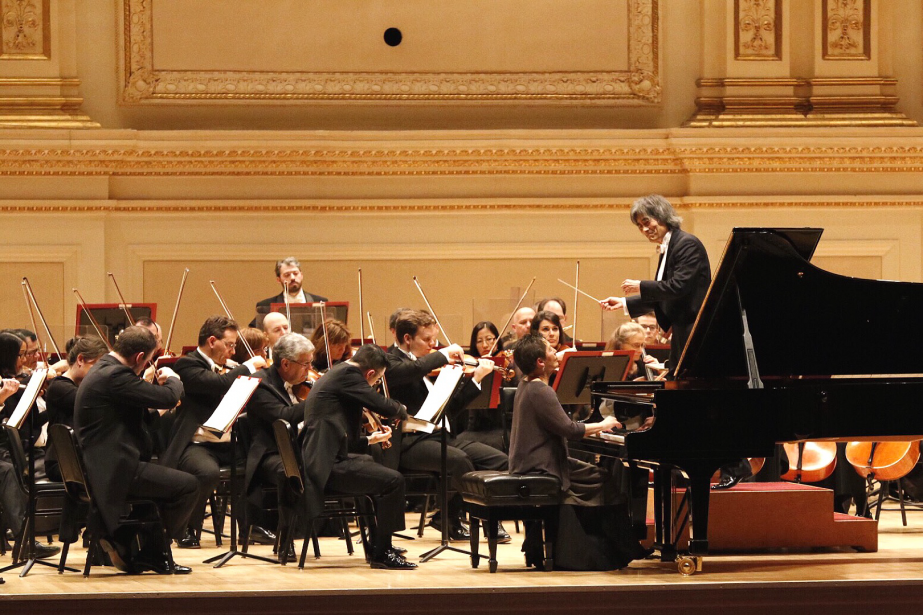
–
–
–
In New York for the second concert of their American tour, the musicians of the Orchester symphonique de Montréal (OSM) offered a unique program at the Big Apple last night. For the occasion, the conductor wanted to “take risks”. Risks that were warmly applauded by the audience at Carnegie Hall.
Arrived in New York in the middle of the night, after more than four hours by bus from Washington, where they had delivered a performance the day before, the 120 or so musicians of the OSM hardly had time to play tourists. when arriving in Manhattan.
A short night’s sleep and a little break later, they were back on stage to rehearse the unique New York program they would perform a few hours later.
“When we are more advanced in the tour, we will have a little more time to relax, but now we have just started and we play at Carnegie Hall, one of the most prestigious venues in the world,” said Richard Roberts. , first violin in the orchestra.
A native of Minnesota, the violinist remembers playing Carnegie Hall for the first time in 1968. Looking at his enthusiasm, it seems that the excitement doesn’t wear off with years and rehearsals. “There are probably only three or four rooms like this in the world,” he said.
A point of view shared by his conductor. “We all love Maison symphonique, but it’s different,” said Kent Nagano a few minutes after the New York performance.
“Carnegie Hall is one of the biggest halls in the world, it gives inspiration. We want to try, we want to risk things that we have never thought of before because we hear something else here. ”
The conductor claimed to have conducted an extreme version of the Rite of Spring by Stravinsky. “We played The coronation the most varied, the most nuanced that we can dare, ”he said.
Despite the proximity, this is the first time the OSM has performed at Carnegie Hall since 2011. At the time, the orchestra performed a program that included pieces by Gabrieli, Bach, Webern, Stravinsky and Beethoven.
Yesterday evening, the OSM presented The waltz by Ravel, the Concerto pour piano nThe 3 by Beethoven and The Rite of Spring by Stravinsky. “A vibrant and colorful program,” said Richard Roberts.
Before the concert, the revered magazine New Yorker described the program as somewhat ‘flashy’ (splashy), but praised “the elegant and determined Quebec orchestra” and the “extraordinary” soloist Maria João Pires.
New York is the only city on the American tour where the young pianist Daniil Trifonov has left his bench to the Portuguese soloist and where the orchestra has abandoned Prokofiev in favor of Beethoven.
Obviously very popular in New York, where she rarely performs (her last visit would date back to 2011), the soloist received a strong ovation and even offered a solo encore: Bagatelle nThe 5 de Beethoven.
Not to be outdone, the orchestra also aroused very loud applause for The waltz of Ravel and a standing ovation from a large part of the public with his “risky” version of the Rite of Spring.
Generous, the Montreal orchestra offered two reminders: Prelude to the Afternoon of a Faun by Debussy and The farandole by Bizet.
To summarize his programming, the conductor explains that he “wanted to provoke” by offering pieces that date from a pivotal period, a period of transition, around the First World War. Without getting involved in politics, the American-born conductor believes that the United States is currently going through one of these “transition periods.”
– .


